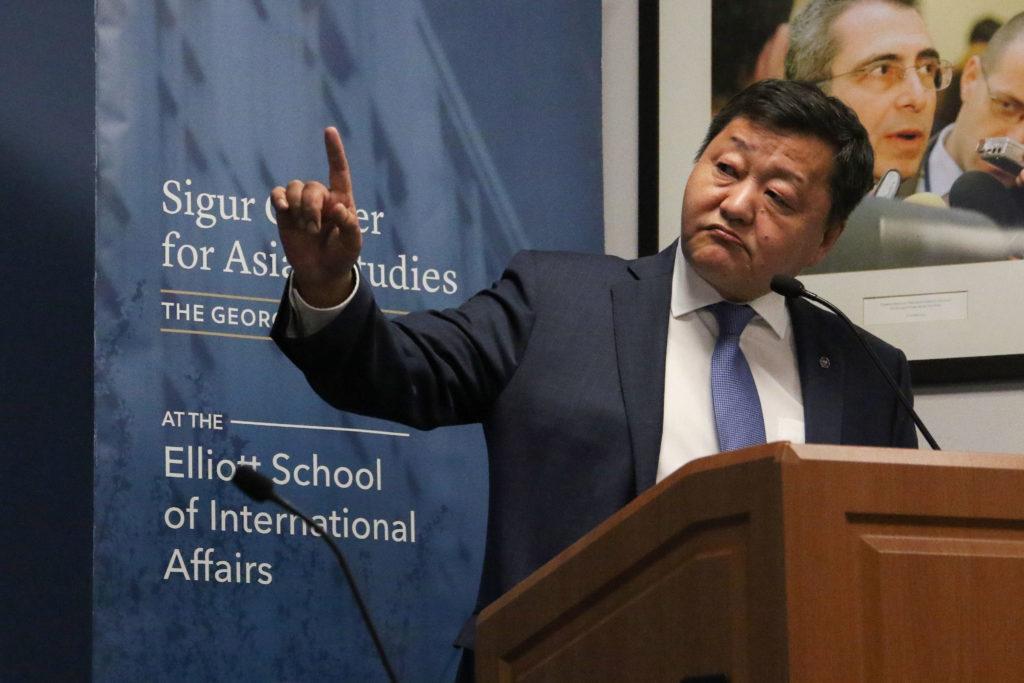Updated: Nov. 12, 2018 at 9:19 p.m.
The ambassador of Mongolia to the United States spoke Monday at the Elliott School of International Affairs about Mongolia’s global presence and its position between two superpowers.
Otgonbayar Yondon, who was nominated as Mongolia’s ambassador to the United States in May 2017, discussed the 2,000-year history of the central Asian country’s domestic politics and international relations with Russia and China, its neighbors and nuclear powers. Yondon, who has a doctorate in international relations, said he visited the Elliott School to speak “not as an ambassador, but as a scholar.”
Yondon said knowledge of the history of Mongolia’s foreign relations with China and Russia, from Mongol Emperor Genghis Khan’s 13th-century regime to the fall of the Soviet Union in 1991, is essential to understand modern-day relations with the two countries.
“Many trends today we observe have their beginnings in those times,” Yondon said.
Yondon said that when Mongolia declared its independence in 1911 from the newly minted Republic of China, Russian support was instrumental in Mongolia’s success. He added that even though the United Nations recognized Mongolia’s sovereignty, the border between China and Mongolia remained contentious for years – China maintained claims on Mongolian territory until 2002.
“There were times when these borders were not peaceful,” Yondon said.
He said tension over Mongolia’s independence has historically put pressure on Mongolian-Chinese relations for many years. He said that despite the precedent, the current diplomatic thaw between the two nations is mutually beneficial to promote trade and economic cooperation.
Yondon, who characterized his country as “a very important source of energy for China,” also discussed a recent agreement between Mongolia and its northern and southern neighbors facilitating the construction of an oil pipeline through the three countries. He said the development could bolster Mongolia’s economy but voiced concern about the cost of the initiative.
“These projects are so big that if Mongolia is expected to bear the burden of this project, we simply cannot do it,” he said. “Our economy is simply too small to sustain this kind of project.”
Looking ahead, Yondon addressed the future of Mongolia both as an independent nation and as the neighbor of two global superpowers.
Mongolia shifted from a unitary socialist regime to a democratic system in 1990 after a revolution influenced by the fall of the Soviet Union, he said. When asked about the success of democracy in Mongolia almost three decades later, Yondon was positive.
“As far as democratic institutions are concerned, I would say we have been able to make this transfer,” Yondon said. “We have been able to hold general elections nine times and presidential elections five times, and every time, the power has been transferred peacefully.”
But Yondon also said the Mongolian government could take additional steps to help its citizens. He said the introduction of free-market economics in Mongolia has made it more difficult for working-class citizens to succeed – a contrast to his own upbringing during Mongolia’s period of socialist rule.
“Because I did well in my secondary school, they picked me out for the University of Moscow,” Yondon said, referring to the socialist government. “I cannot imagine this situation taking place now.”





